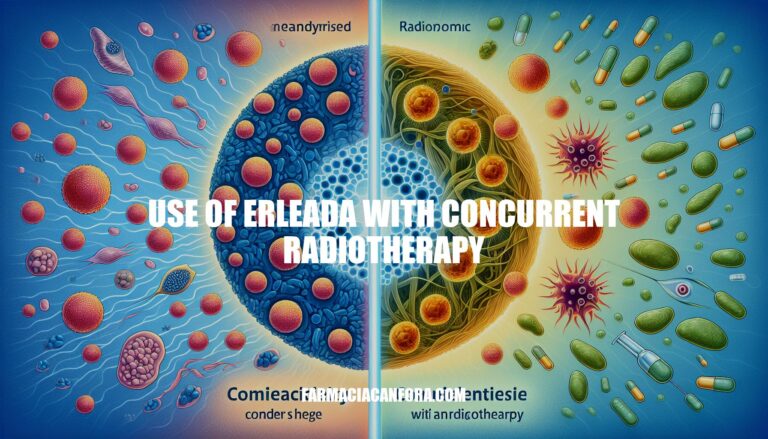


The concurrent use of Erleada (apalutamide) with radiotherapy is gaining attention in the medical field for its potential to enhance treatment outcomes in prostate cancer. This combination is particularly relevant as it aims to improve overall survival rates and maintain quality of life for patients. Understanding its benefits and implications is crucial for advancing cancer treatment protocols.
Erleada (apalutamide) is an androgen receptor (AR) inhibitor. It works by binding to the ligand-binding domain of the AR, inhibiting AR nuclear translocation, DNA binding, and AR-mediated transcription. This blocks the effects of androgens (male hormones like testosterone), which are necessary for prostate cancer cell growth.
When used concurrently with radiotherapy, Erleada enhances the treatment’s effectiveness. Radiotherapy targets and damages cancer cells’ DNA, while Erleada inhibits the androgen signaling that promotes cancer cell survival and proliferation. This combination can lead to improved outcomes in prostate cancer treatment.
Here are some key clinical trials and studies on the use of Erleada (apalutamide) with concurrent radiotherapy:
Phase 2 Apa-RP Study:
SPARTAN Study:
TITAN Study:
These studies collectively highlight the efficacy of Erleada in combination with radiotherapy and ADT across various stages of prostate cancer, emphasizing its role in improving survival outcomes and reducing recurrence rates.
Erleada (apalutamide), when used with concurrent radiotherapy, has shown significant benefits and efficacy in treating prostate cancer. Here are the key points supported by clinical research:
Overall Survival (OS): The TITAN study demonstrated that Erleada plus androgen deprivation therapy (ADT) significantly improved overall survival. Patients receiving Erleada had a 35% reduction in the risk of death compared to those on ADT alone (HR=0.65; p<0.0001).
Metastasis-Free Survival (MFS): In the SPARTAN study, Erleada significantly prolonged metastasis-free survival. Patients treated with Erleada had a median MFS of 40.5 months compared to 16.2 months for those on placebo (HR=0.28; p<0.0001).
Quality of Life: Patient-reported outcomes from the TITAN study indicated that Erleada maintained health-related quality of life without worsening the side effect burden. Scores on the Brief Pain Inventory-Short Form and Functional Assessment of Cancer Therapy-Prostate questionnaires showed no significant differences between the Erleada and placebo groups.
Safety Profile: Erleada has been shown to have a manageable safety profile. Common side effects include fatigue, hypertension, rash, diarrhea, and falls, but severe side effects were relatively low.
These findings highlight Erleada’s efficacy and safety, making it a valuable option for patients undergoing concurrent radiotherapy for prostate cancer.
Here are the potential risks and side effects associated with the use of Erleada (apalutamide) with concurrent radiotherapy, based on clinical evidence:
Patients suitable for Erleada (apalutamide) with concurrent radiotherapy typically meet the following criteria:
These criteria ensure that patients can benefit from the treatment while minimizing potential risks.
Erleada (apalutamide) is an androgen receptor inhibitor that, when used concurrently with radiotherapy, enhances treatment effectiveness for prostate cancer by inhibiting androgen signaling and promoting cancer cell death.
Clinical trials have demonstrated significant benefits in overall survival, metastasis-free survival, and quality of life. The TITAN study showed a 35% reduction in the risk of death compared to ADT alone, while the SPARTAN study prolonged median metastasis-free survival by 24 months.
Erleada has a manageable safety profile with common side effects including fatigue, hypertension, rash, diarrhea, and falls. Patients suitable for treatment typically have non-metastatic castration-resistant prostate cancer or metastatic castration-sensitive prostate cancer receiving ADT, good performance status, and no significant comorbidities.